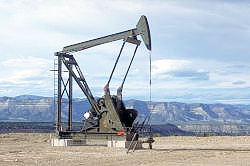Interfax: Russia sees risk of global economic slowdown due to low oil prices – minister

ISTANBUL. Feb 10 (Interfax) – Russia warned G20 finance ministers meeting in Istanbul about the risks of a slowdown of global economic growth as a result of the drop in oil prices and called for a deeper analysis of the impact that the drop in prices has had on the economies of various countries, Russian Finance Minister Anton Siluanov said following the first day of the meetings.
The impact that changing oil prices have had on the global economy was one of the main topics at the traditional dinner of G20 finance ministers and central bank governors, which was held on Monday evening.
Siluanov said they discussed “who wins and who loses” from the drop in prices, and Russia expressed its view of the situation.
“The cumulative effect of such a dramatic drop in prices for crude could weaken overall demand in the global economy, which will lead to the slowdown of its growth,” Siluanov said.
He said Russia called for a “deeper analysis of the impact of the drop in oil prices on various categories of countries.”
Winners and losers
“Recently it has become customary to identify two categories of countries: those who lose because of the drop and those who win. The former are crude exporters and the latter are importers. Such a division into winners and losers is conditional, because I believe that the global economy will have a mixed reaction to such dramatic price fluctuations,” Siluanov said.
He said that at the meeting on Monday Russia raised questions about the assessment that oil exporting countries lose amid low prices and importing countries only win.
“We spoke based on the example of Russia, that when oil exporting countries reduce the inflow of foreign currency into the country, there is a weakening of the currency, weakening of domestic and external demand. In these conditions imports fall and, consequently, this ultimately has an impact on changes in global demand,” Siluanov said. Russia’s imports, for example, fell by 40% in 2014, he said. “I’m sure that our main trade partners felt this,” the minister added.
Taking into account the possible problems of oil producing countries in light of their unstable financial situation, there could be a decline in their investments, as well as investments by exporting countries in U.S. and eurozone securities, Siluanov said.
“If all these factors are weighed, it might turn out – and we believe this needs to be considered – that the drop in oil prices is not having as favorable an impact on the global economy as experts say. Everything needs to be weighed for various categories of countries: how these flows of demand for goods and investment as a result of the drop in oil prices affect various categories of countries and, ultimately, the global economy,” Siluanov said.
Prices
Participants in the meeting also gave assessments of the imbalance on the oil market. It was estimated that the oversupply of oil on the market is 2%, the minister said.
“Therefore, the price fell by half compared to the previously seen figures,” Siluanov said.
According to estimates given at the meeting, demand for oil is not yet growing at a rate that might have been expected, so prices could remain at the current level. There were no forecasts as to how long they might stay at the current level.
Siluanov also said that the “world is seeing deferred investment in the oil and gas sector, about $1 trillion of deferred investment as a result of the drop in oil prices.”
“But demand, according to estimates, should grow in the medium term. Ultimately, the decrease in the supply of oil should lead to the rebalancing of oil producers and to oil price growth in the medium-term future,” Siluanov said.
